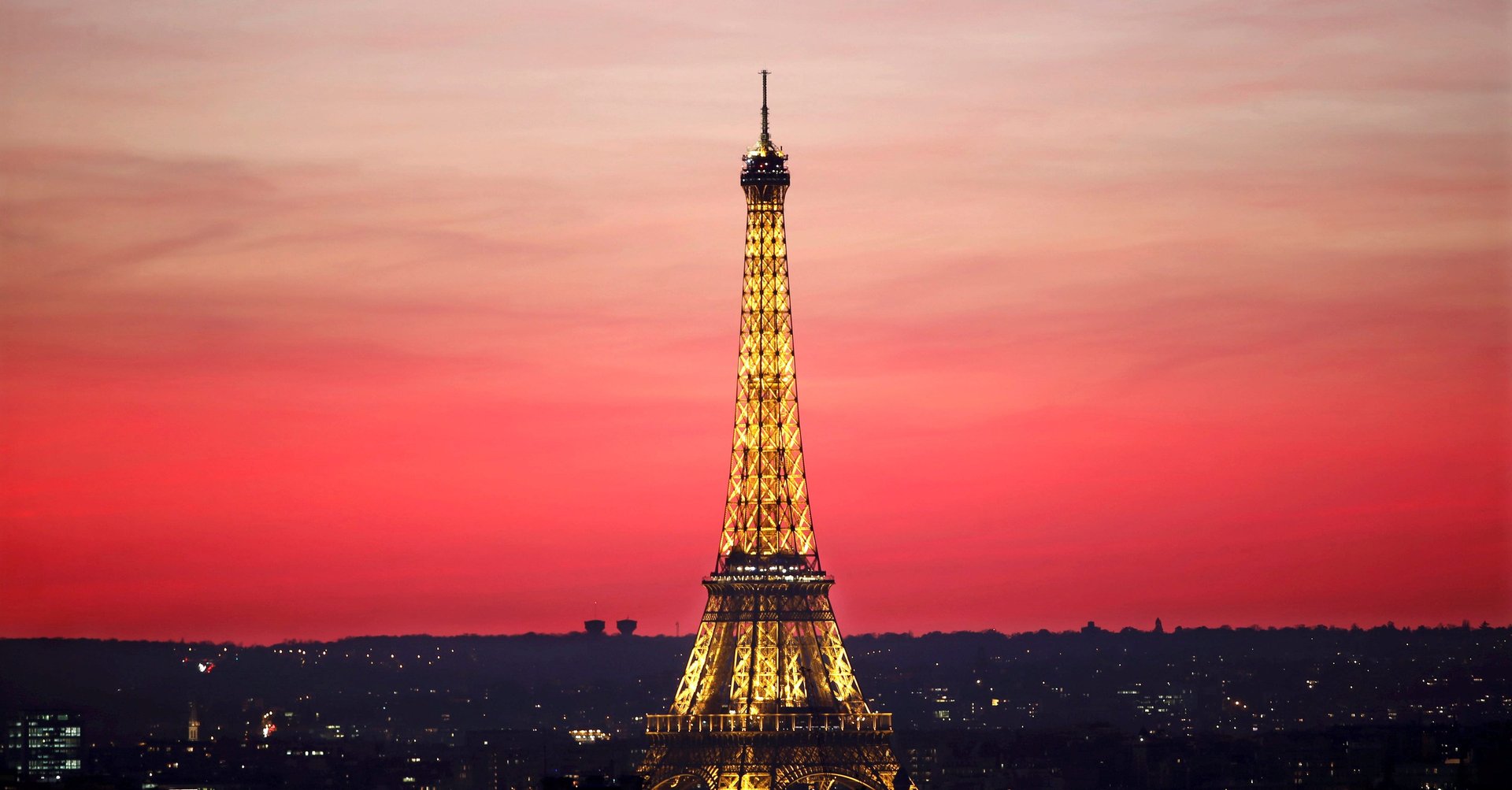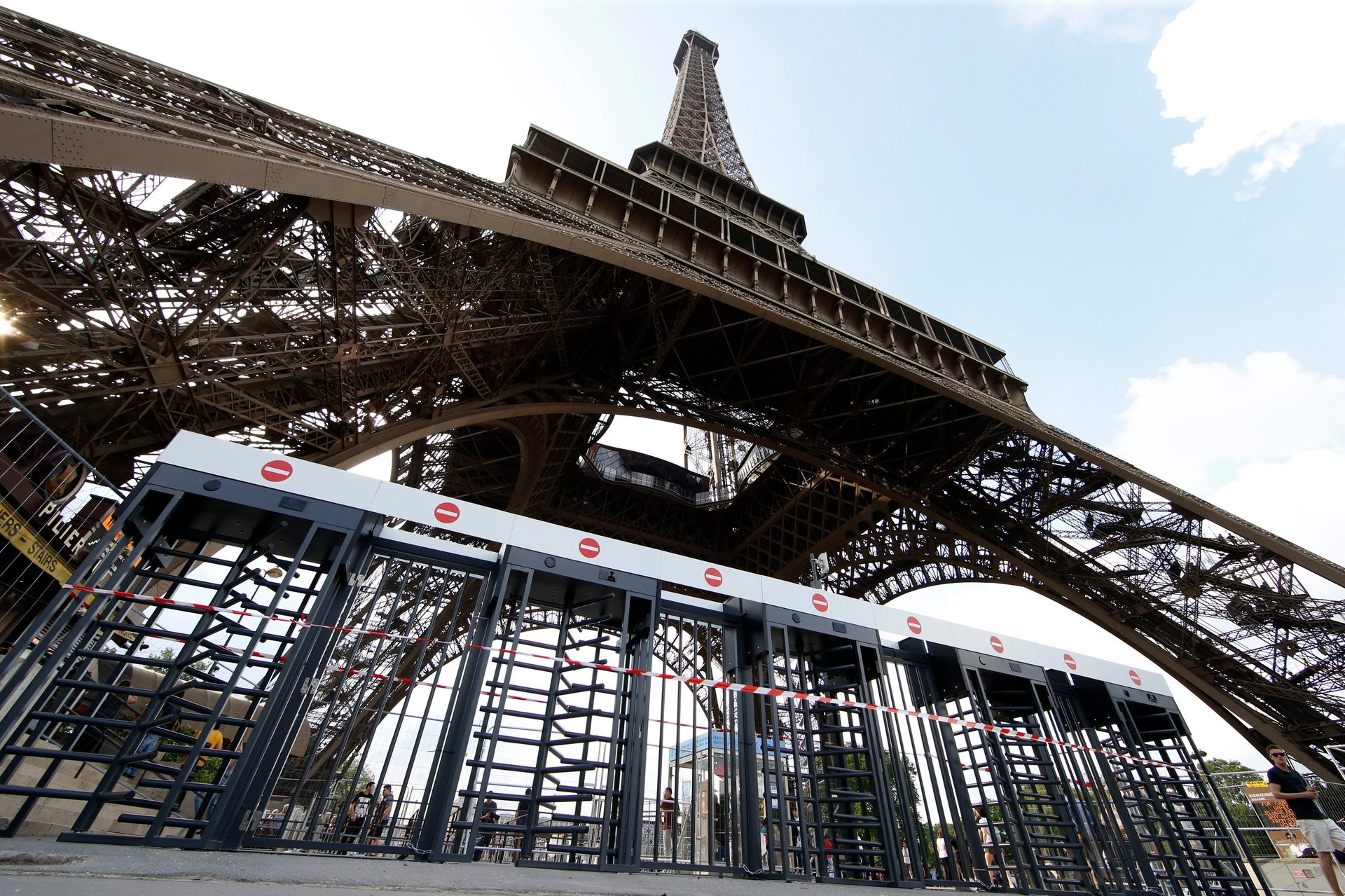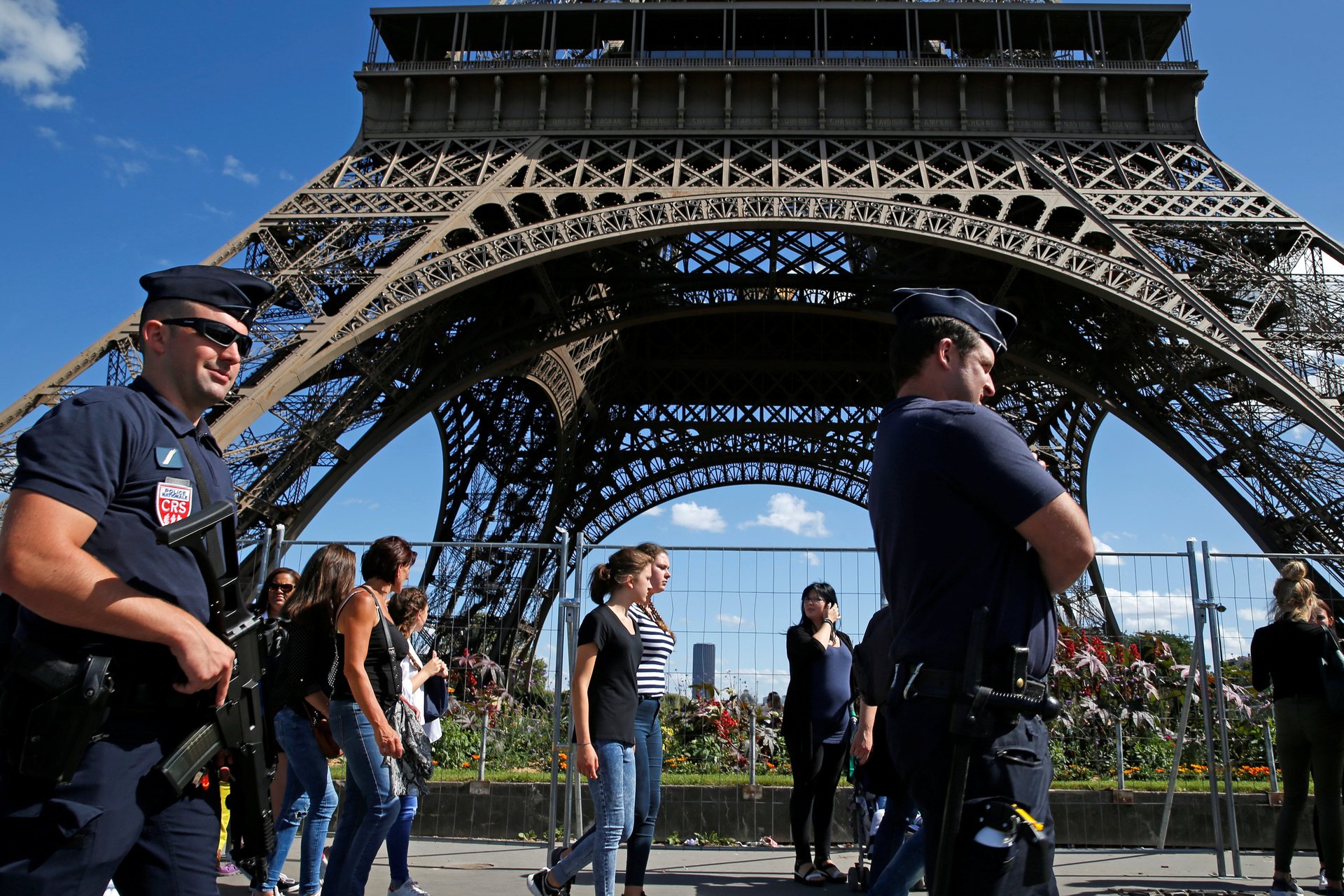Paris plans to build a permanent bulletproof glass wall around the Eiffel Tower
The City of Lights is bracing for darker times.


The City of Lights is bracing for darker times.
In a Feb. 9 press conference, Paris’s deputy mayor Jean-François Martins unveiled a proposal to build a permanent bulletproof glass wall around the base of the Eiffel Tower to protect France’s most popular tourist attraction from terrorist attacks. The “aesthetic perimeter,” as Martins called it, will replace unsightly metal fences the city erected as preventive measures when it hosted the Euro football tournament last year.

“Sadly, the risk of terrorism hasn’t gone away,” said Martins.
Measuring 8 ft (2.4 m) high, the glass wall will protect the 128-year old landmark as well as two adjacent ponds. Tourists can only access the areas after clearing security checkpoints, which are quickly becoming standard fixtures in cultural attractions around the world.
The mayor’s office will seek design proposals through an official tender process. Like New York officials who commissioned sculptural bollards to protect downtown Manhattan after the Sept. 11 attacks, Paris is actively seeking counter-terrorism architecture and urban planning solutions that preserve its charm. “We have three aims: to improve the look, make access easier, and strengthen the protection of visitors and staff,” explained Martins. Le Parisien estimates the city will spend $22 million (link in French) for the security barriers.

France’s capital has been on high alert since jihadists killed 130 people in attacks across the city in November 2015, including at the Bataclan music hall. On Feb. 3, a machete-wielding Egyptian citizen lunged at two soldiers at the Louvre museum.
Parisians are already lamenting the end of carefree, scenic walks in the city that birthed the flâneur. Writes reporter Oliver Gee for The Local, “Anyone hoping to just stroll under the tower like they did in the old days, well, you can forget it. The glass wall will mean that everyone will have to pass through security checks, even if they weren’t planning to climb the tower at all.”